Written by: Rohan Dixit, CEO & Founder of Lief Therapeutics
It’s a new year ???? and the perfect time to lock in some new mental health habits.
As a former neuroscientist and someone who’s struggled with anxiety and depression, I know how important my state of mind is to my work, relationships and happiness.
I’ve spent the last decade learning how to become more resilient to stress. Here’s what I’ve learned:
1. Find your Zen… one step at a time
I used to study meditation’s effect on the brain. You can read more about it here, but TL;DR: meditation changes your brain, improves your focus, and makes you feel better.
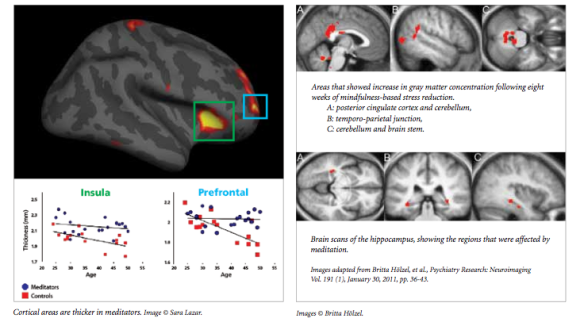
Regular meditation training can improve your emotional self-regulation skills, thicken parts of your cortex associated with focus, empathy and sense of self, and even re-wire white matter connecting different parts of your brain together. It’s been shown to reduce anxiety and depression and improve focus and cognitive performance. And it’s free to get started.
To build a consistent practice, take a page from BJ Fogg at Stanford and start a “Tiny Habit” around meditation. The idea of tiny habits can be really useful — in a nutshell, you pick a small, easily accomplished activity, attach it to a trigger you encounter in your daily life, and then reward yourself each time you successfully accomplish it.
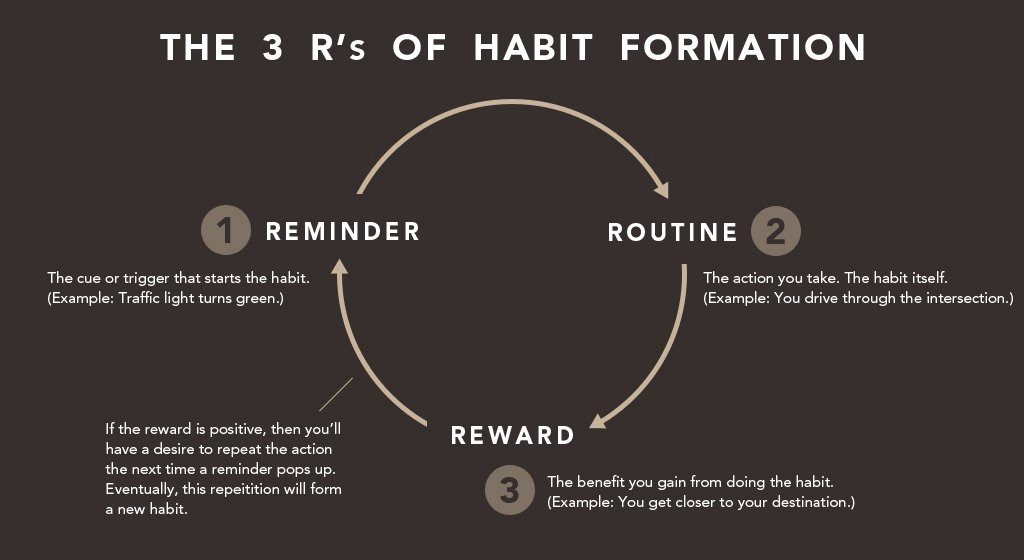
This loop is pretty powerful for building consistency with new habits. For me, I picked:
✅ Reminder: Getting out of the shower in the morning
✅ Routine: 1 minute of meditation on my bed
✅ Reward: Feeling a little more clarity and empathy going into my day
Over time, you can build on your tiny habit, slowly adding more minutes of meditation each week or month. You can even string other habits immediately after the first, creating a “habit string” that can serve as the basis of a great morning or evening routine.
So far, I’m at 20 minutes of meditation per day.
This works. Try it.
P.S. If you’re having trouble knowing where to start with meditation, check out Sam Harris’s guide on How to Meditate.
2. Train your HRV
If you haven’t heard of HRV or heart rate variability yet, it’s a single number with a big effect on your mental health, and you can train to improve it.
HRV measures the micro-fluctuations in heart rate caused by your vagus nerve, a long, meandering bundle of axons that connects the heart with the brain. Low HRV correlates with anxiety and depression — and boosting your number can decrease stress, anxiety and depression both in-the-moment, as well as cumulatively over time.
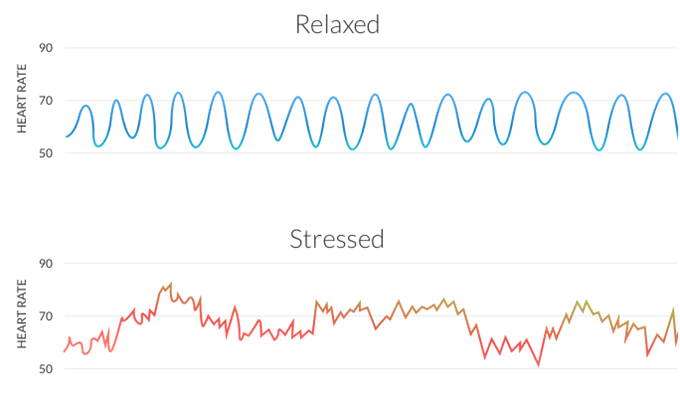
Unfortunately it’s hard to improve HRV with today’s tech gadgets. You can use straps like the Wahoo Tikr and the free Elite HRV app to measure it, but they don’t help you train your number up. There are products like Heartmath that do train HRV, but they’re clunky ear or finger devices you can’t wear around in normal life.

Because I’m obsessed with hacking my own mental health, I created this HRV trainer patch to help make it easier. It’s pretty cool — discreet enough to be worn under your clothing, invisibly communicating your HRV to you through unique vibration patterns. That means you can train when you need it, for example during a stressful meeting, without anyone knowing you’re doing it.
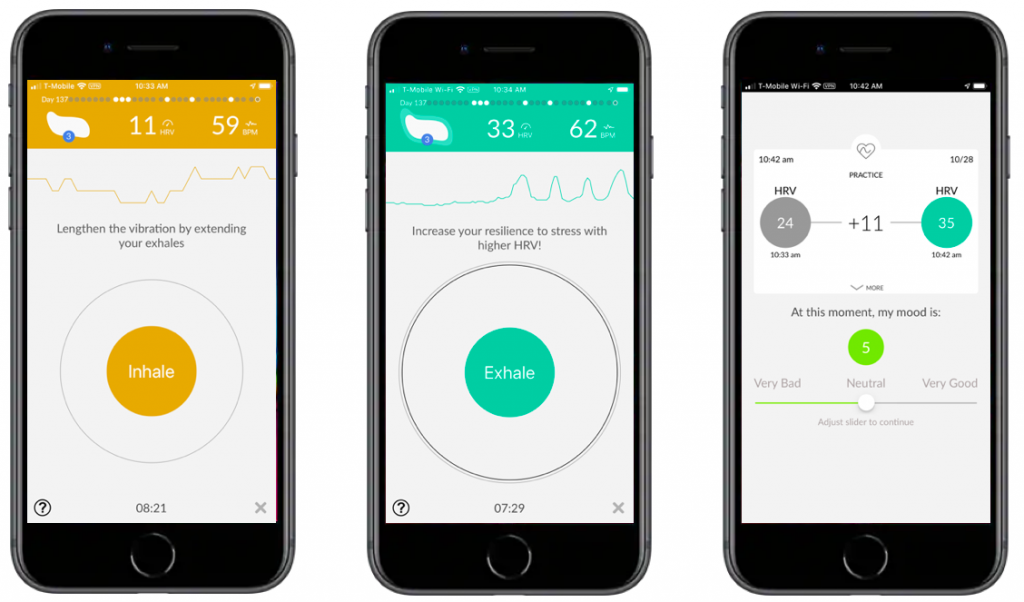
HRV training is kind of like quantified meditation. And just like going to the gym regularly helps your physical body, you can improve your mental health with HRV training done consistently and over time.
As a bonus, you may notice your HRV patterns correlate to other things that you can further optimize, like diet and sleep. Which leads me to…
3. Optimize Sleep
It’s hard to over-emphasize how important sleep is to our mental health. A study came out last year showing one night of sleep deprivation causes a 30% increase in anxiety the next day.
As the study authors noted:
“In the past 20 years of research, we have not found a single psychiatric disorder in which sleep is normal.” — Dr. Ben Walker, UC Berkeley
According to Dr. Ben Walker, over 80% of anxiety patients suffer from disrupted sleep. And since day-time anxiety and depression also affects night-time sleep, it’s a two-way street that can become a vicious cycle.
There are a couple things you can do to optimize your sleep and give yourself the best shot at optimal mental health once you’re awake.
✅ Go to bed at the same time every night. (consider creating a night-time routine to make this easy.)
✅ No screens at least 1 hour before bed.
✅ Use a smart thermostat, Chilipad etc. to keep yourself slightly colder during the first part of the night, then gradually warm up towards daybreak (see thermoregulation and sleep review here.)
✅ Small (2.5 mg) doses of melatonin before bed for deeper, more restorative sleep. This has made a dramatic difference in my sleep quality, and it appears to be relatively safe and non-habit forming.
4. Exercise Smart
The Lancet recently published a 1.2 million person study on exercise and mental health. This is probably the best data we’ve ever had, and there are some surprising take-aways.
First, yes, exercise can improve your mental health. On average, individuals who exercised had 43% (1.5) fewer bad mental health days per month, even after controlling for socioeconomic and physical demographics.
Team sports, cycling, aerobic and gym activities all corresponded to around 20–22% fewer bad days per month. So, pick something you like and do it (hint: create a tiny habit around it to make sure it gets done!)
One final point: more exercise was not necessarily better. The authors recommend exercise durations of 45 min, a minimum of 3 times a week.
Do you have 2–3 hours a week for better mental health? Considering all the beneficial physical side-effects you’ll get for free, this seems like a good bet.
5. Nutritional psychiatry
Our diet heavily influences our mental health. Studies of typical “Western” diets, high in processed foods and sugars, have demonstrated a 25–35% increased risk of depression compared to traditional Japanese and Mediterranean diets, for example.
That’s an effect significant enough to be a blockbuster drug. Unfortunately, most psychiatrists are not yet prescribing diet as a mainstream mental health intervention.
This is a new science, but what we know seems to follow some general rules:
⬆️ Whole fruits, vegetables, and unprocessed grains
⬆️ Fish and seafood
⬆️ Intermittent fasting (16:8, 5:2, etc.) with effects on depression
⬇️ ️Lean meats and dairy
⬇️ Refined foods, sugars and simple carbohydrates that rapidly convert to sugar
I’ve been using my Lief to track the effect of diet on my HRV, and found some interesting patterns. For example, highly refined carbohydrate meals plunged my HRV into the red and yellow zone and made me feel tired and sluggish.
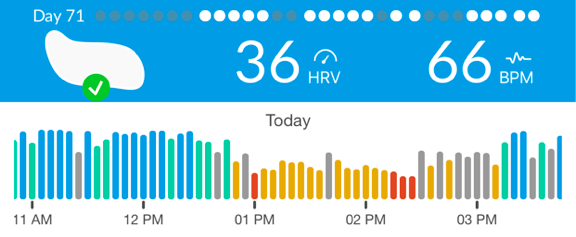
Fascinatingly, it appears the same nerve responsible for creating HRV, the vagus, may also be intimately tied into digestion and gut health.
This seems like continuing evidence of the link between diet, inflammation, and mental health, and I’ve used this information to drastically change my eating habits — and it’s been working, at least for me.
While your optimal diet may be different from other peoples, the findings from these new studies could be a place to start experimenting. Give each change you make at least 2–3 weeks to accurately evaluate its effects on your mental health, physical energy, and sleep quality.
Good luck!
I hope you find some of this useful in improving your mental health in the new year. The first step is recognizing you already have many factors within your control when it comes to your mental health: practicing meditation, increasing your HRV, sleeping well, exercising regularly, and eating optimally. It’s just a matter of building daily tiny habits that serve you in one, two or all of these areas.
Take it one day at a time, and trust that seemingly small steps will eventually take you far.
Curious about HRV? For a limited time, visit www.getlief.com and join using discount code NEWYEARSLIEF10 to get 10% off the world’s most advanced HRV technology.
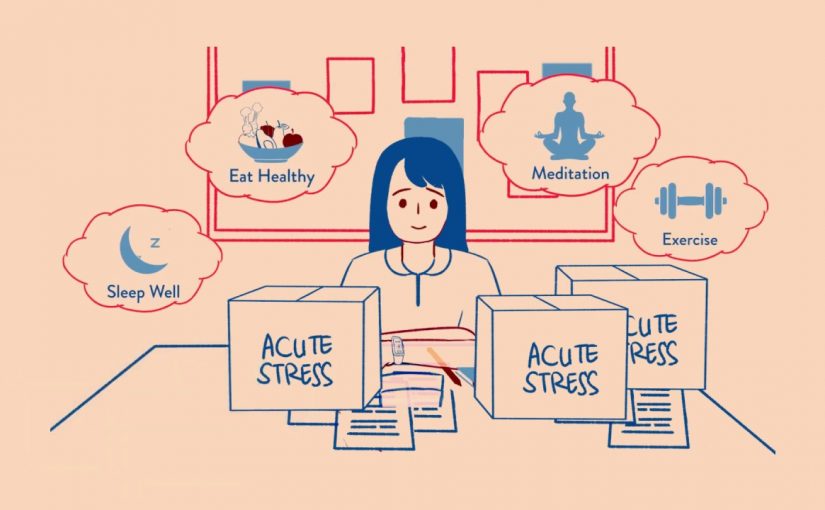

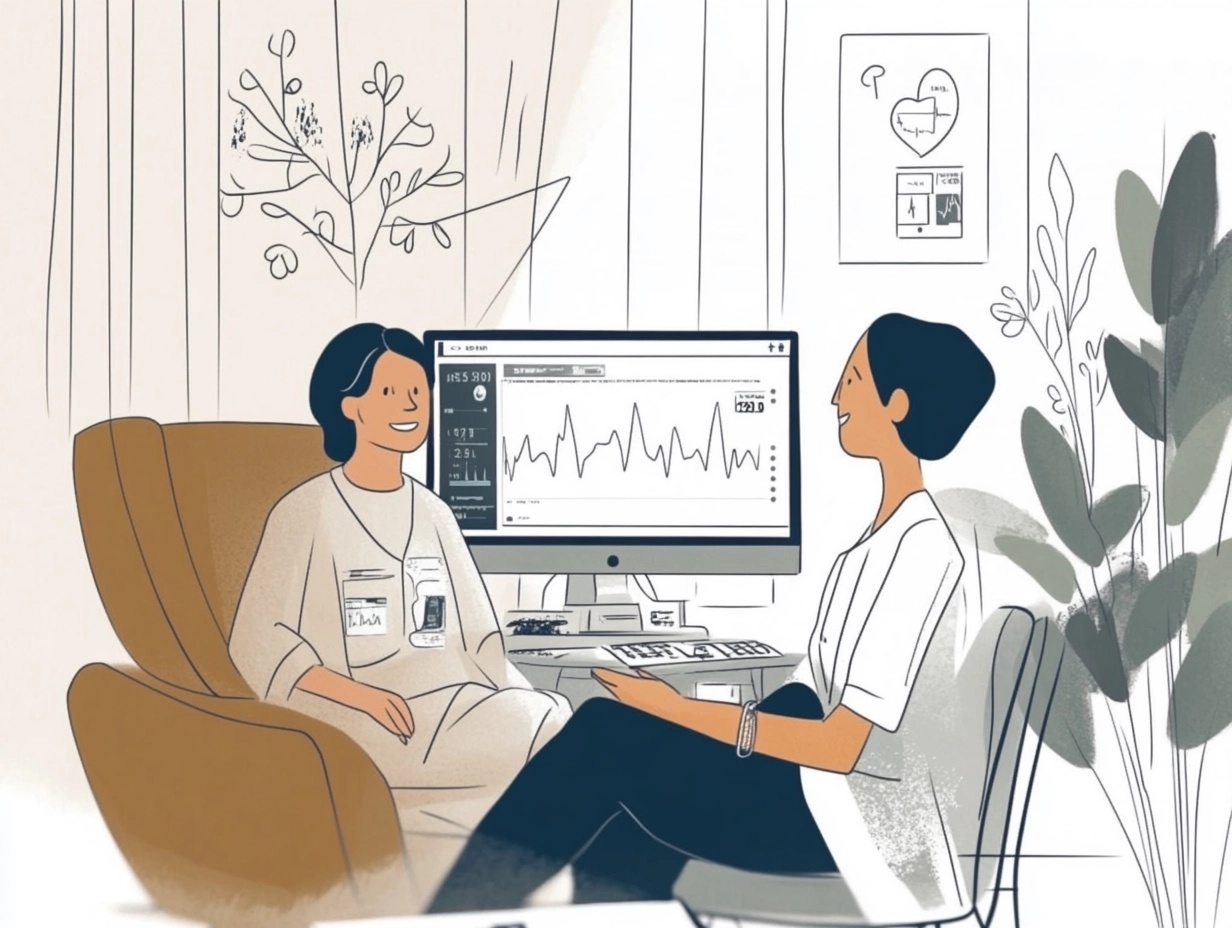


Leave a Reply
You must be logged in to post a comment.